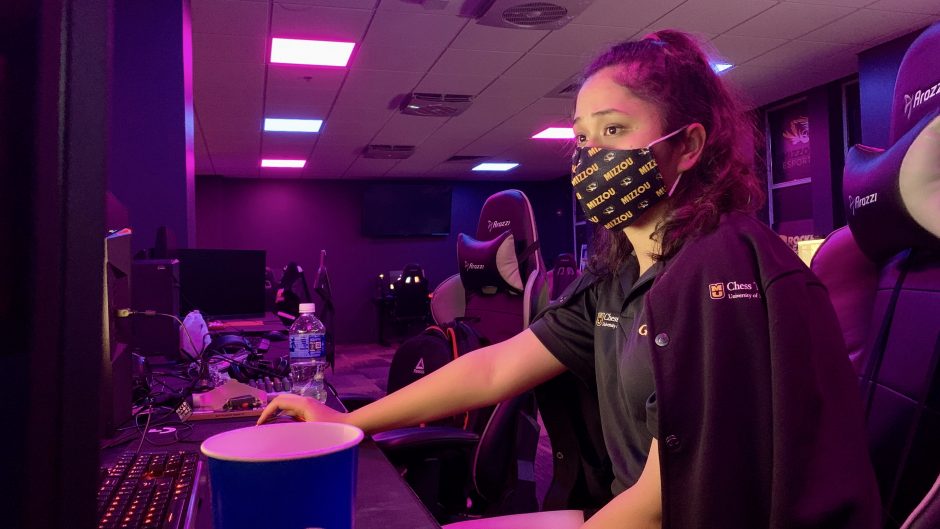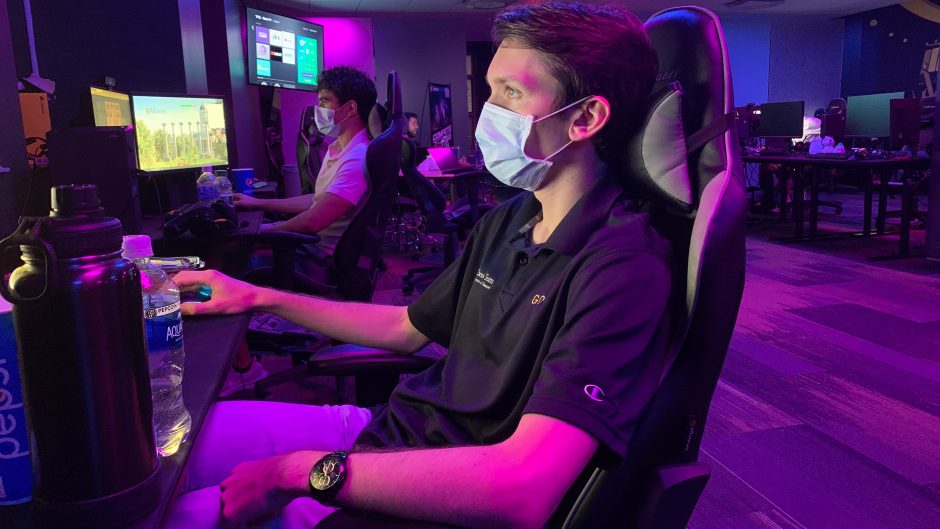
Oct. 20, 2020
Contact: Eric Stann, 573-882-3346, StannE@missouri.edu
A collegiate chess competition isn’t a typical excuse for a college student to pull an all-nighter.
However, for one student on the Mizzou Chess Team, competing at the recent 2020 U.S. Online Collegiate Rapid and Blitz Championship, his last round didn’t finish until around 4 a.m. local time in India. As the coronavirus pandemic has caused life adjustments for many people across the globe, Mizzou’s Chess Team has also adjusted to competing in virtual chess tournaments while five team members are at Mizzou, and the others are overseas in their home countries.
Mizzou’s coach Cristian Chirila, a Romanian grandmaster, said accommodating all of the different time zones for his players was not a huge undertaking because the team had already hosted many meetings and practices online.
“We’ve been able to continue practicing normally, more or less,” Chirila said. “We’re lucky, as chess players, in that regard.”

An unprecedented season
Grigory Oparin, the captain of the Mizzou Chess Team, is earning a graduate degree in Spanish while regularly participating in online chess competitions. Born in Munich, Germany, and raised as a youth in Moscow, Oparin’s chess career began when he was 4 years old. He loves chess as a sport because it’s multifaceted, combining elements of art, psychology and science.
“You can always find opportunities to improve in chess,” Oparin said.
This continuous journey of improvement inspires Oparin to keep playing, even during a pandemic that has changed the way the sport looks. When Oparin came to Mizzou, he didn’t expect to compete in chess tournaments using just online platforms and video conference apps. Playing chess online, despite a pandemic, has its added challenges — fatigue from focusing intensely on a computer screen, potential internet connection issues and even the necessity to make quick moves on the virtual chessboard with a computer mouse.
“Playing chess online is just a completely different experience than playing over the board,” Oparin said. “When you’re playing over the board, you see your opponent’s emotions and the way he’s handling the pressure. You can’t do that when you’re playing online, just staring at your screen, moving some virtual pieces.”
However, playing online has not been a barrier to the team’s success.

At the virtual 2020 U.S. Online Collegiate Rapid and Blitz Championships, an in-person tournament that was postponed and moved completely online because of the pandemic, the team placed fourth overall out of 25 teams for the rapid championship, and earned a bronze award for the blitz championship. In addition, Gulrukhbegim Tokhirjonova and Olga Badelka took silver and bronze awards, respectively, in the women’s section.
Meanwhile, collegiate chess is becoming increasingly competitive. The 2017 world’s vice champion in rapid chess was on one of the teams at the competition. Some of the teams Mizzou competed against also had more than twice as many players as Mizzou did — on a grandmaster level. Grandmasters are similar to black-belts in karate – they are top level players when it comes to playing chess. Oparin, a grandmaster himself, earned a fourth place individual finish in the blitz championship.
Coach Chirila looks forward to the opportunity to physically see all of his team members face-to-face, especially as some of the new players could not travel to Mizzou due to the pandemic. He awaits being able to meet them all in person to bond, strategize and practice with each other.
“We all miss touching the chess pieces by hand,” Chirila said.
Chirila’s ultimate goal for the Mizzou Chess Team remains to win a national championship, whether over the board or on a computer screen.



